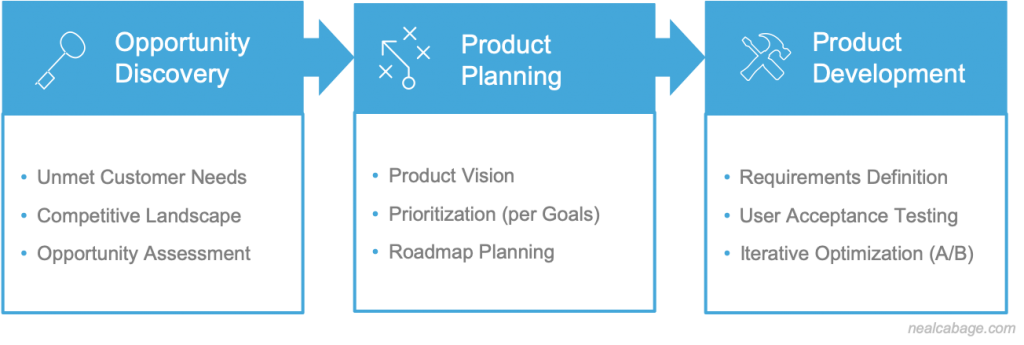What is a Product Manager?
A Product manager is a key organizational function that guides each step of a product’s lifecycle beginning from development until it gets to the market. To build top-notch products, product managers focus on advocating and prioritizing customer needs within an organizational set-up to ensure their needs have been addressed.

What is a Product?
To better understand what product management is all about, it’s first important to understand the meaning of a product as every process revolves around it. A product can be a physical item, software or service designed to satisfy the needs of a group of users. A product undergoes a process which begins from development until introduction to the market, getting it to be accepted by the market then retired when it’s no longer needed.
Defining Success
Exemplary products solve customer challenges in ways that customers enjoy but at the same time, bring success to businesses. They are often a result of creativity fused with new technologies to make them robust (customer inspired, technology enabled).
Product management is a multidisciplinary pursuit that requires product managers to work closely with development teams, marketing and management in order to accomplish their goals. The goal of this interaction is to communicate effectively with the rest of the team so they understand what needs to be done to develop an appropriate and successful product.
Product management entails engaging in competitive market research, analyzing customer needs and, speaking to customers to understand what challenges they’re experiencing and how they want them solved. By doing this, product managers are able to develop product-market fits and ensure significant resources aren’t put into developing a product that nobody would want to purchase.
What Product Management is Not
There are a lot of misconceptions about the role of product management as companies often fail to identify what a product manager should do and what is outside of their scope.
Product Management isn’t Defining Market Requirements
Many companies mistakenly think the role of a product manager is to define market requirements and hand them over to the engineer to design a product to cater for those needs. For starters, the term “market requirements” is often construed within the wrong context as markets don’t have requirements, it’s the people/consumers that do. The individual defining the product is the one who has to talk to the customers directly.
Product Management isn’t Product Marketing
Product management doesn’t entail promotions, pricing, messaging, positioning or any other product launch initiatives such as online marketing, influence marketing or customer acquisition strategies. Even though these are critical activities that contribute to the success of a product, they’re classified as product marketing which requires the expertise of a marketing professional. Some companies may try to get a product manager to input in these roles, but it’s worth noting that marketing-based activities are vastly different from discovery-based activities meaning it’s difficult to find professionals skilled in both areas.
Product Management isn’t Defining the Business Case
In some cases, the responsibility of identifying the strategic opportunity and writing opportunity briefs/business cases is handled by the directors or VPs of Product. In such a scenario, product managers own certain focus areas (aka problem spaces) then come in to write the requirements and closely work with the teams involved after the opportunities identified by senior management have been approved.
Product Management isn’t Project Management
Product management and project management are two closely related terms which are often confused but they’re quite different. A product manager envisions a product that needs to be built, puts requirements together and prioritizes them. On the other hand, a project manager is tasked with executing a product manager’s vision within the set timelines and budget. In some companies, the product management role is curved out of a project/program management organization especially if the company is IT or custom software oriented.
In this context, the project manager collects, documents requirements and manages the project from conception all the way to delivery. However, the discovery process is wholesome and it’s worth noting that both roles are complementary, but they’re quite distinct from each other. With this explanation of product management and clearing any misconceptions and misunderstandings about the role, organizations should be able to better understand the process in order to create winning and impactful products.


